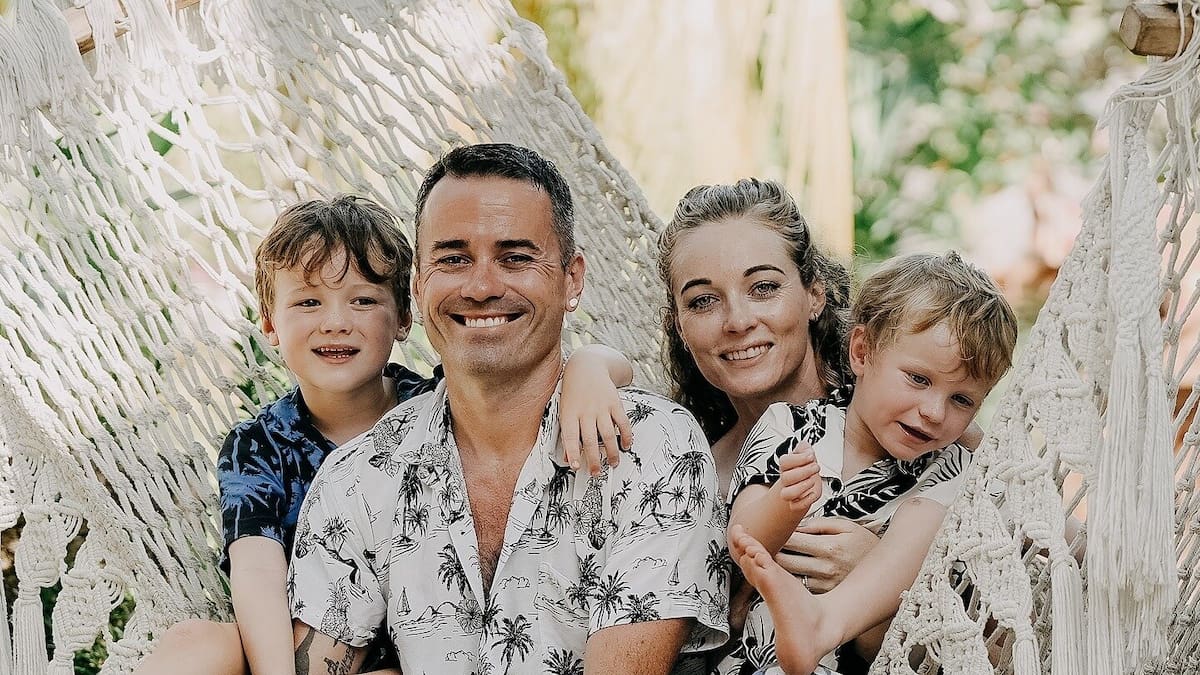Now aged 33, Goddard is sharing her story to mark MS Awareness Week, which begins today.
MS is a chronic neurological condition affecting the central nervous system. The immune system attacks the protective layer of nerve fibres, disrupting communication between the brain and body.
The condition affects more than 5000 New Zealanders, according to MS New Zealand (MSNZ). There is no cure.
MSNZ said this year’s awareness week theme was “time matters”, to highlight the importance of early diagnosis and treatment.
It is a theme Goddard wholeheartedly agrees with.
“Getting on my meds early, I think that’s given me a massive advantage … ”
Waiting to give birth before starting treatment
Goddard said she remembered telling her midwife of her symptoms.
“Her face just went into shock.”
Goddard was admitted to the emergency ward for testing.
The tests were clear for anything pregnancy-related. This indicated something was wrong neurologically, she said.
“Pretty much, I went in for the pregnancy appointment that day, and I was admitted for a week.”
She had a lumbar puncture and an MRI scan to confirm her MS diagnosis.
Goddard said she was given steroids “to calm down the symptoms”, but had to wait until after giving birth before starting immunotherapy treatment.
When she was 30 weeks pregnant, she stopped working because her vision was badly deteriorating.
“I couldn’t … see the traffic lights when I was driving.”
Goddard said she took medication to help. Two weeks later, her vision improved.
Sam and Anthony Goddard with their son Charlie after he was born in 2018.
At 38 weeks pregnant, she was induced and gave birth.
Shortly afterwards, Goddard was transferred from the birthing centre to the neurology department to have immunotherapy.
Goddard had immunotherapy every four weeks for a year. Once her MS and MRI scans were stable, she switched to six-weekly treatments.
‘Lucky’ to have few MS symptoms
Goddard said the family moved back to New Zealand in 2019, and she continued her treatment at Tauranga Hospital.
She said she had permanent damage in her brain and spine, “but nothing that’s affected my walking capabilities”.
Goddard said she became fatigued more easily than the average person, and getting sick was “a bit scary” due to being immunocompromised.
She considered herself “lucky” to not have many symptoms, which she attributed to being diagnosed young and starting treatment early.
Sam Goddard, here with husband Anthony and sons Billy (right) and Charlie (left), considers herself lucky not to have many symptoms.
Goddard said her diagnosis put life into perspective.
“You don’t really know what the future holds, which is a bit daunting because a lot of people, their disease can progress … ”
Goddard – who runs events with her brand Seaside Sippers – said “time massively matters” with MS.
She founded the Seaside Hearts Foundation to help young people with neurological autoimmune diseases through charity events.
What are the risks of delayed diagnosis?
An MSNZ statement said research showed people who started treatment within six months of their first symptom had a 30% slower rate of disease progression compared with those who started treatment later.
Early symptoms included loss of balance, numbness, pain, tremor, weakness, blurred vision, fatigue, and cognitive changes.
“If you’re concerned about changes to your sensations, balance, weakness or visual changes, which aren’t going away, or otherwise explainable, report them to your GP.
“If they continue, push for a referral to neurology.”
MSNZ national manager Amanda Rose said delayed diagnosis correlated with worse disease severity and higher disability scores.
“The greater the delay to diagnosis, the greater the disability at a person’s baseline, some of which will remain permanent.”
Treatments could delay progression and slow long-term disability, she said.
Each year of delay in starting treatment raised the risk of someone reaching disability that affected their walking by about 7.4%, Rose said.
Rose asked people to consider donating to MS Awareness Week.
“We’re advocating hard for better care, faster diagnosis, access to world-class treatments, and a stronger voice for the MS community in shaping policy and the future.”
MZNZ had 18 regional societies across the country to support people with MS, their families and carers.
Donations can be made on the MSNZ website.
Megan Wilson is a health and general news reporter for the Bay of Plenty Times and the Rotorua Daily Post. She has been a journalist since 2021.

